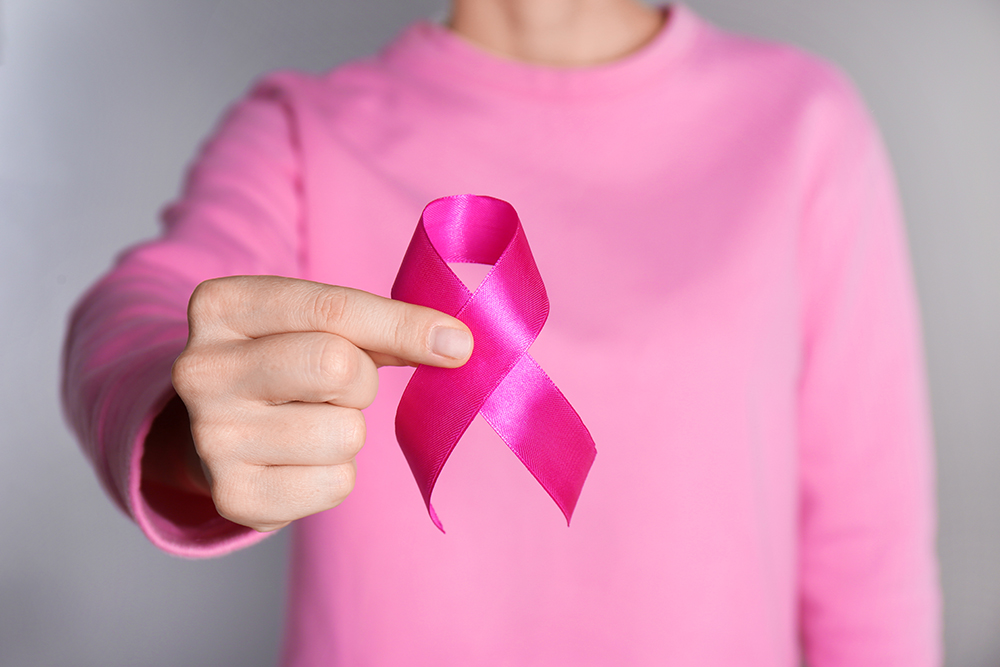This October, during Breast Cancer Awareness Month, I encourage you to take a moment to think about how breast cancer has affected your life. If you haven’t been directly affected by the disease, it’s likely that a friend, family member, neighbor, or coworker has.
Breast cancer is the most common cancer in the United States and one of the most fatal. According to Susan G. Komen, one in eight women in the U.S. will be diagnosed with breast cancer in her lifetime. The disease doesn’t just affect women, though — in 2021, it’s estimated that there will be more than 2,600 new cases of invasive breast cancer in men in the U.S.
Breast Cancer Awareness Month was established in October 1985 to encourage women to get regular mammograms. It now also aims to teach the importance of breast cancer research, as well as how to support survivors and those going through treatment and honor those who lost their lives to the disease.
Everyone is at risk of breast cancer, and there are several factors that contribute to your level of risk — including your gender, age, ethnicity, and lifestyle. As you grow older, your risk increases. If there is a history of breast cancer in your family, you are also at an increased risk for the disease. White women and Black women have the highest rate of new breast cancer cases overall, compared to women of other ethnicities.
Knowing the breast cancer warning signs can help you detect it earlier and begin treatment sooner if cancer is detected. Signs of the disease are not the same in all people, but most commonly, it is a change in the look or feel of the breast or nipple, oftentimes a painless lump. It is important to be self-aware and to contact a healthcare provider if you notice a change or other symptoms. The American Cancer Society encourages women to begin annual mammograms as early as age 40, depending on risk factors. When in doubt, talk to your doctor about the right screening plan for you.
There are several ways to reduce your risk of being diagnosed with breast cancer. One key factor is to maintain a healthy lifestyle, which includes being physically active, maintaining a healthy weight, limiting alcohol, and eating fruits and vegetables.
There are several ways to get involved and support breast cancer awareness year-round. Encourage the women (and men) in your life to know the warning signs and seek medical attention when changes are noticed. Donate to organizations that are funding scientific research and helping patients navigate one of the toughest journeys of their lives. Or, if you know someone who is battling breast cancer, reach out to tell them you are on their team and offer to help them in any way you can.
Consider getting involved in a community event during Breast Cancer Awareness Month to show your support and help raise money for the fight against breast cancer. For example, the Susan G. Komen More Than Pink Walk takes place October 30th and is a “walk where you are” event this year. We’re lucky to have generous support from our community and local sponsors to help us raise awareness and fundraise for the cause.
Since its founding, Komen has funded nearly $1.1 billion in research and more than $2.2 billion in education, screening, and treatment, serving millions and advancing efforts to end breast cancer. In 2021, Komen awarded 30 grants totaling $14 million to researchers — including three at Vanderbilt-Ingram Cancer Center in Nashville.
The power of community and advocacy advances our mission to end breast cancer, forever — won’t you be a part of it?
Tim Newman is the Susan G. Komen state executive director for Tennessee.
